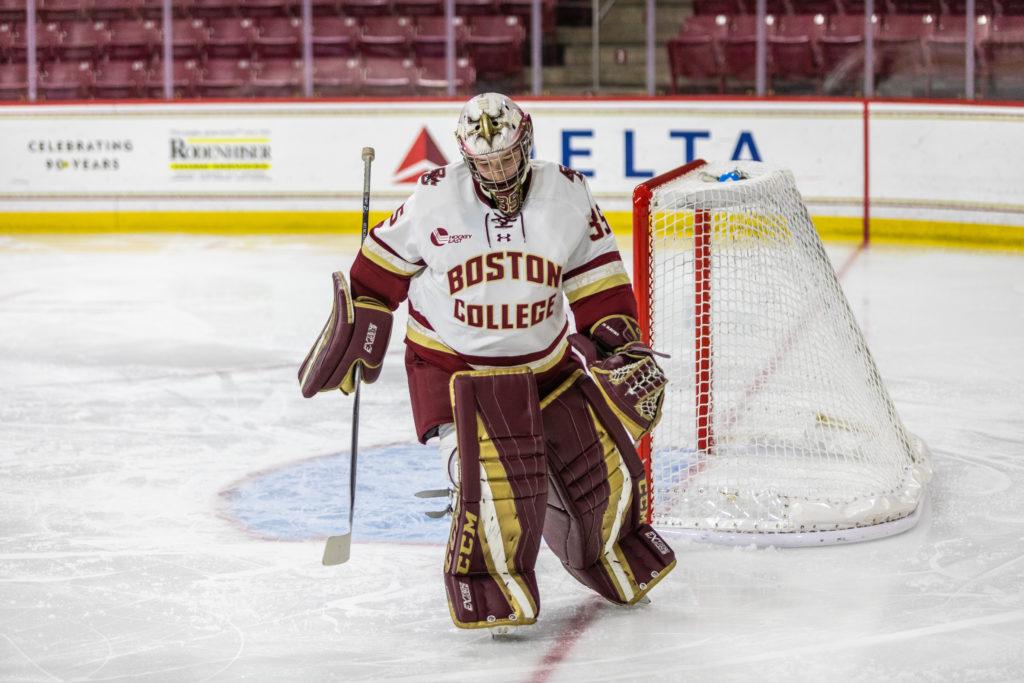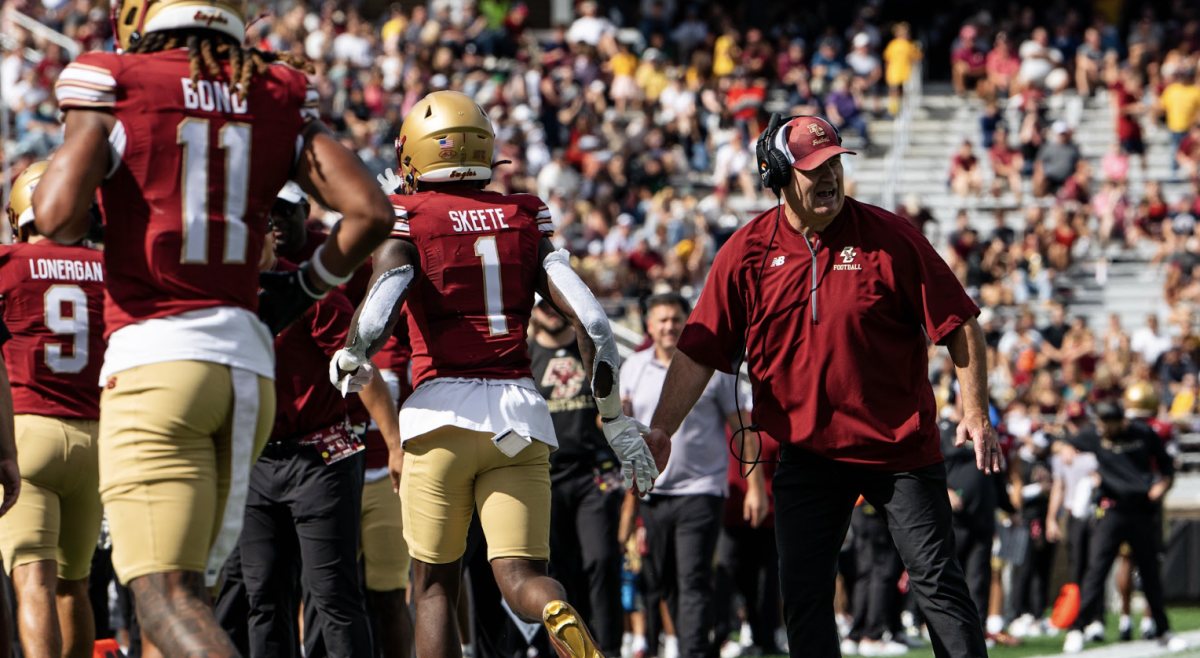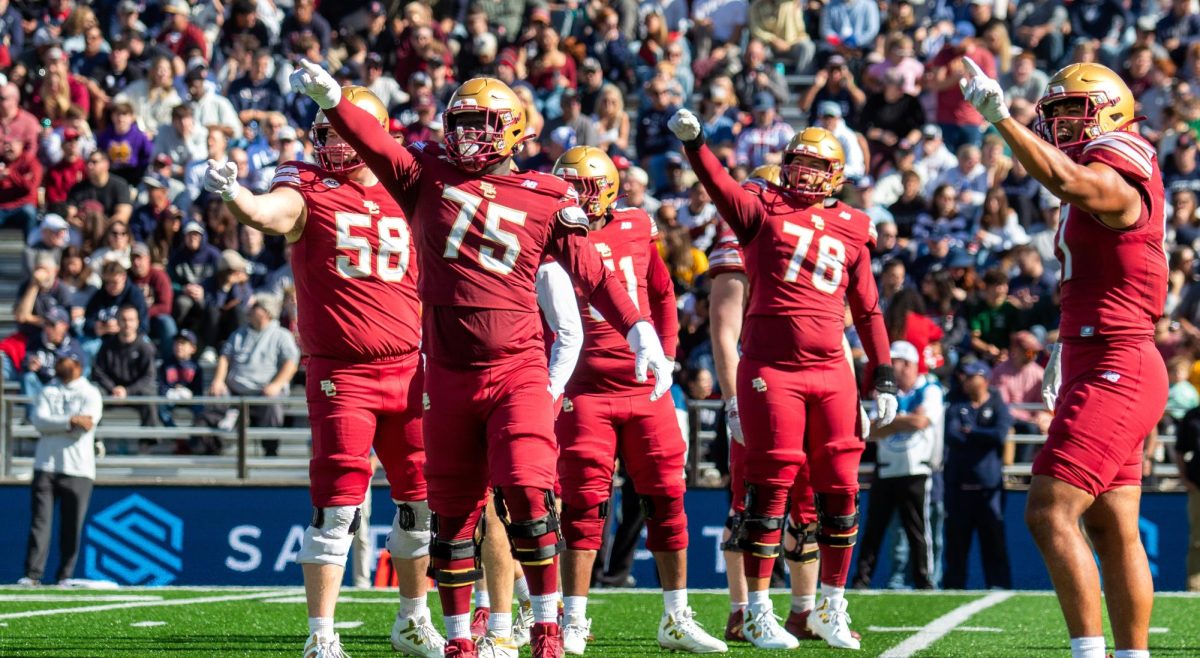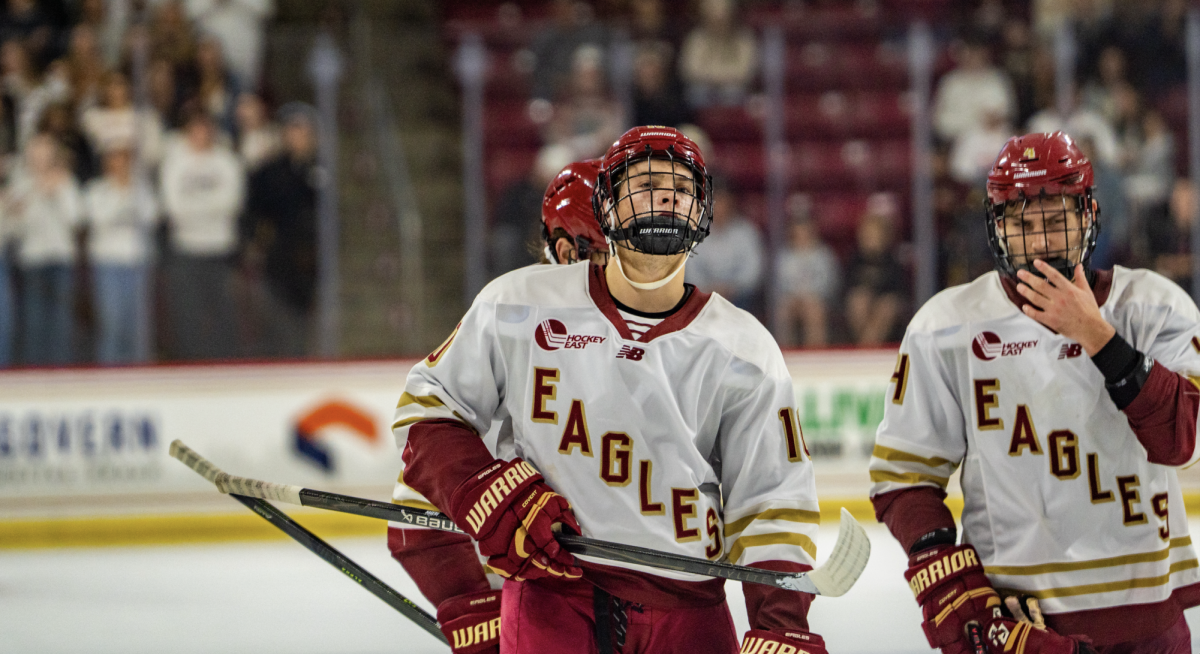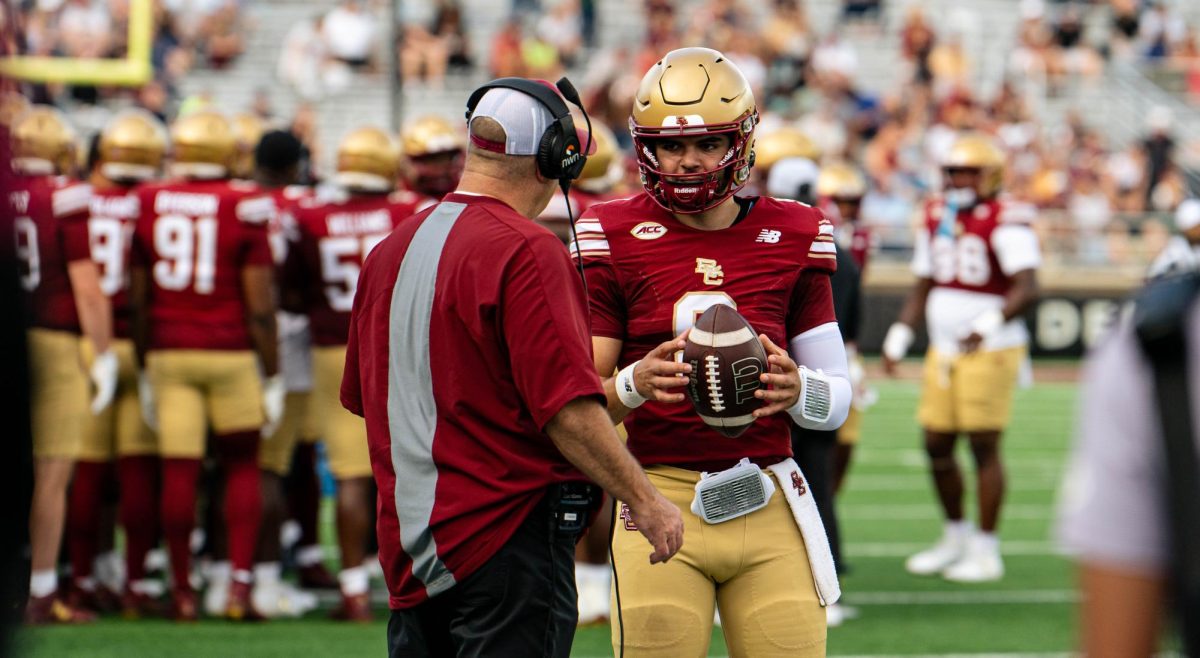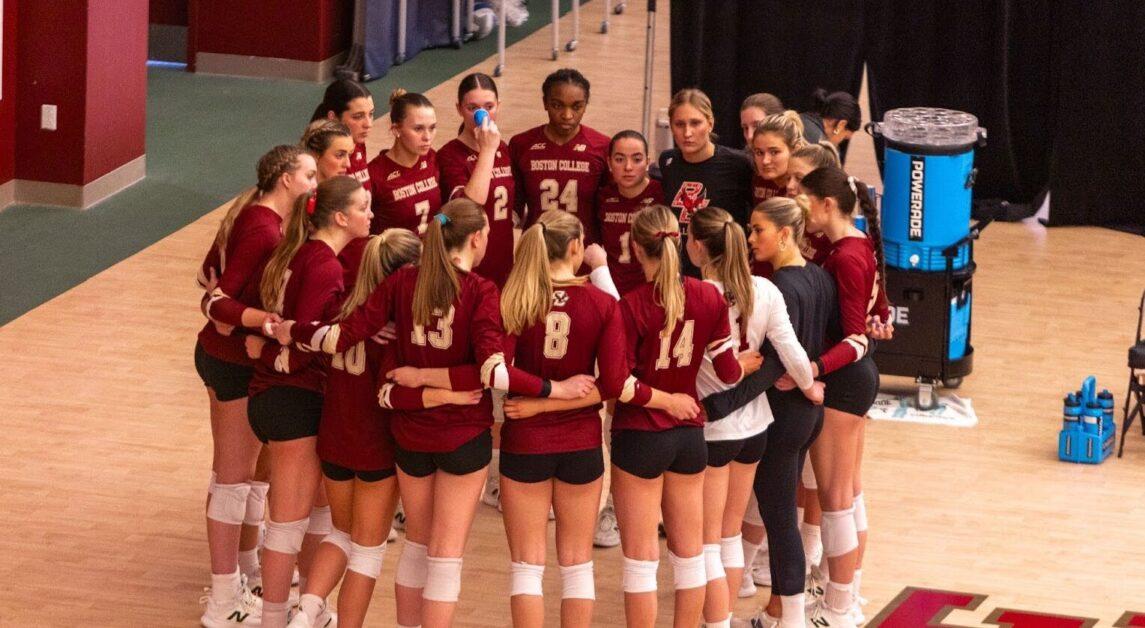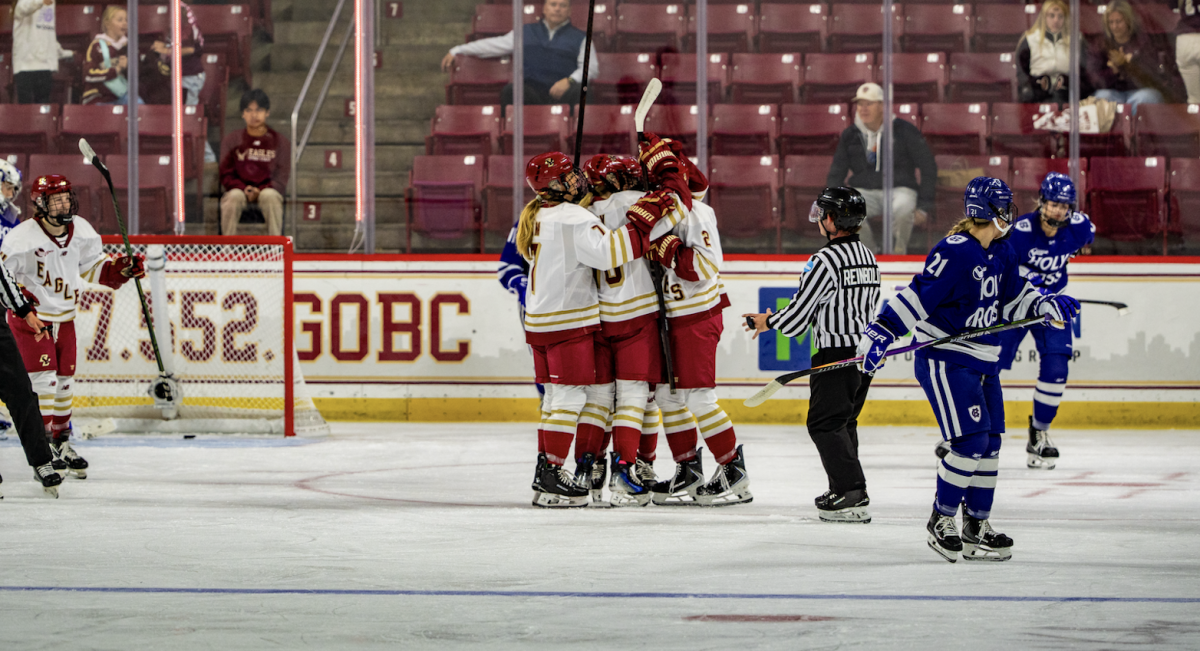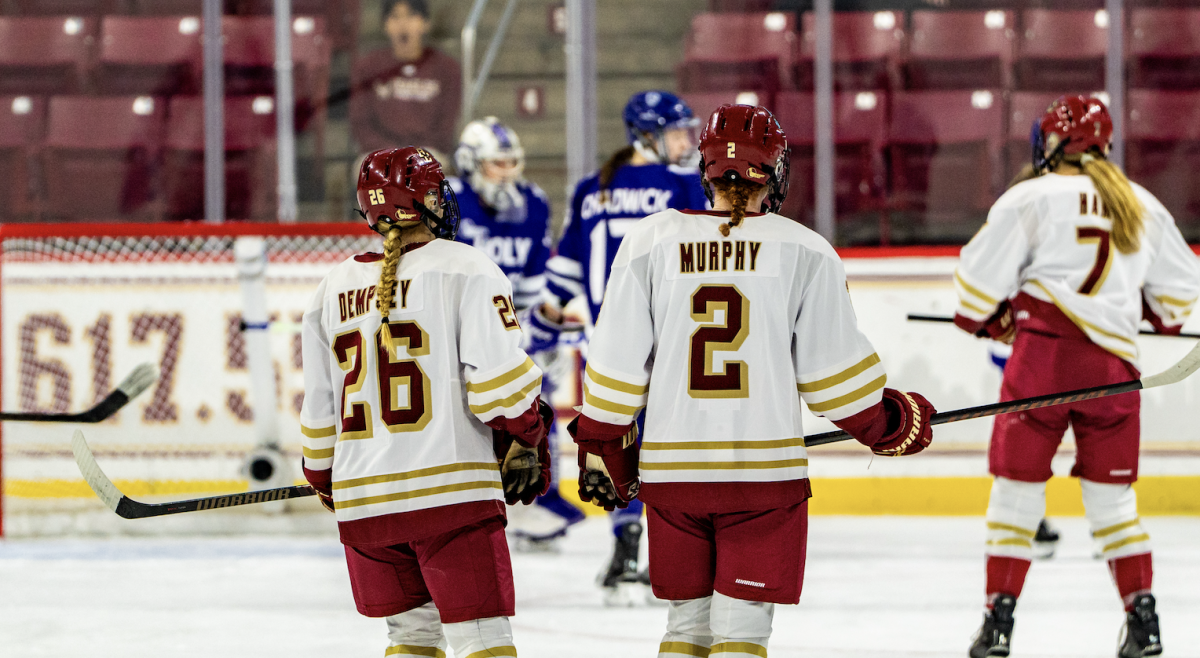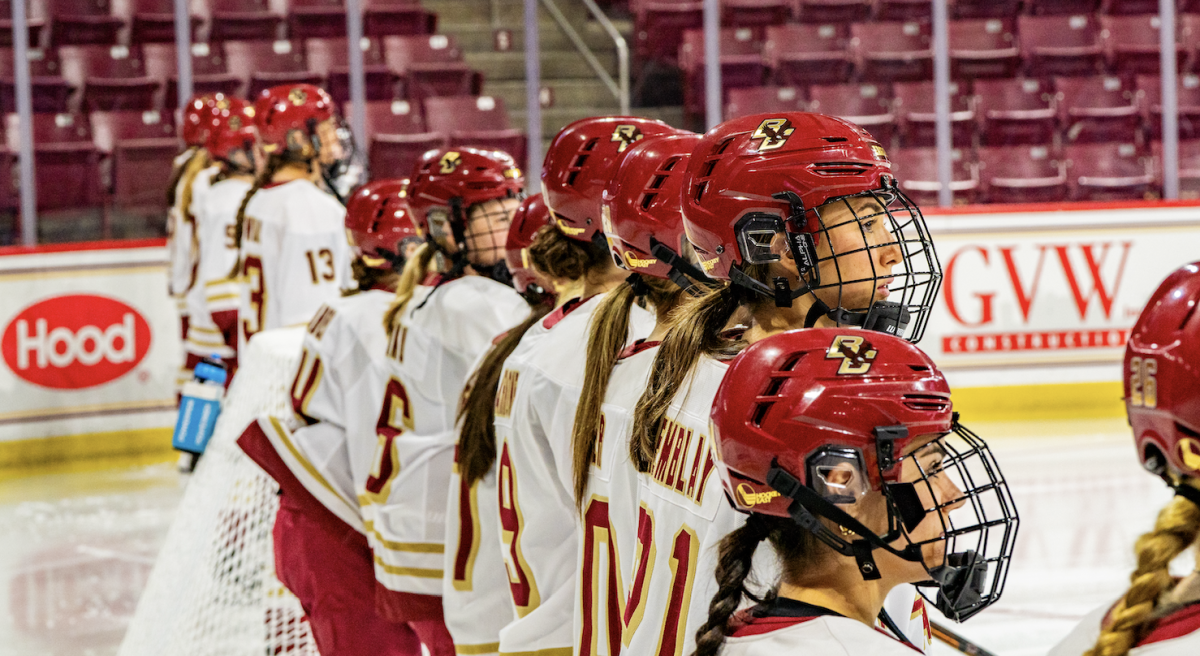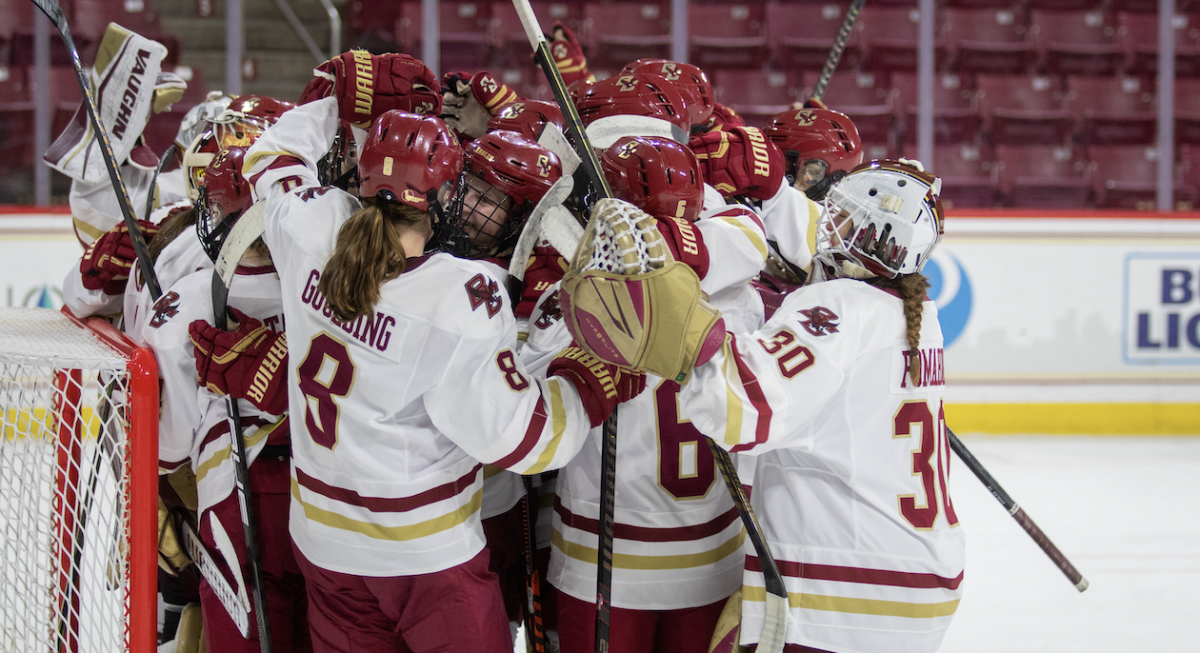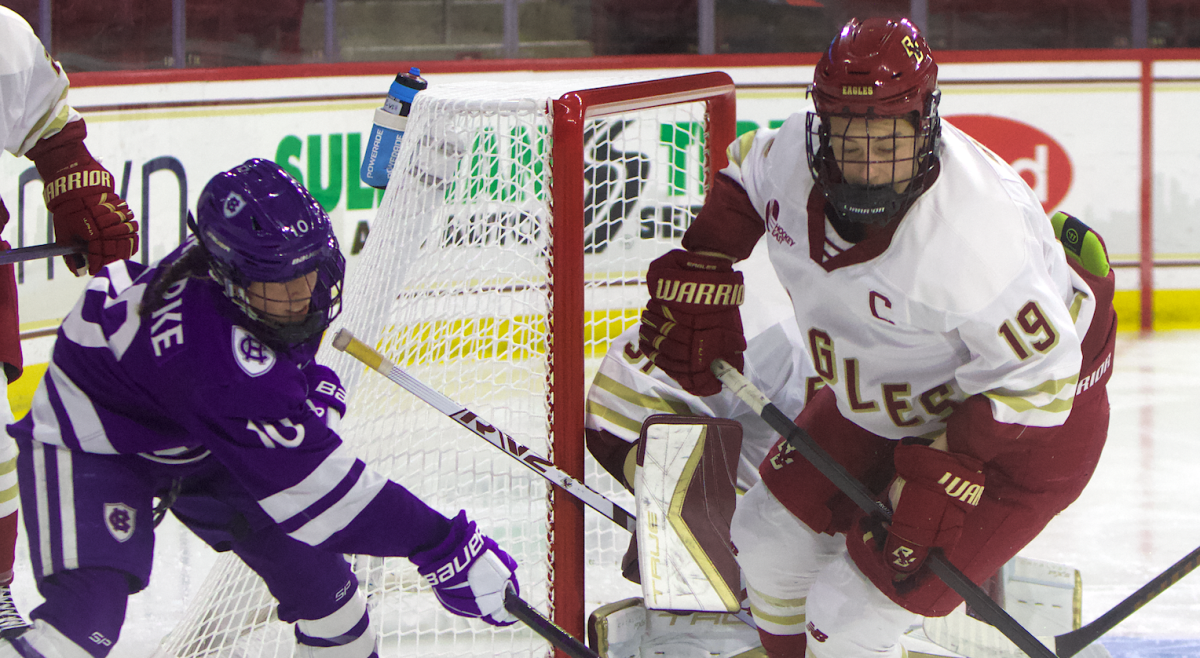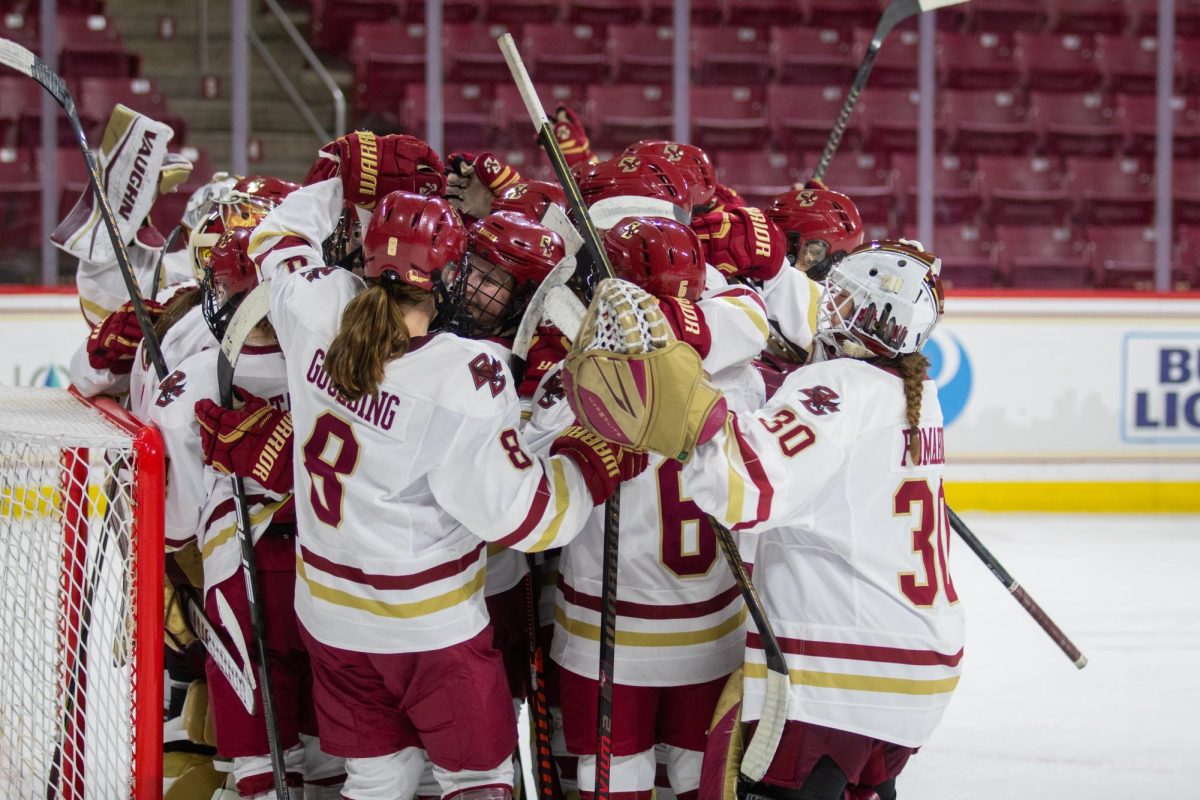Four minutes into the third period of Boston College women’s hockey’s Saturday afternoon game against Providence, the Friars’ Sara Hjalmarsson was penalized for slashing with her team down a goal. A minute into the ensuing power play, the Eagles took advantage. Kali Flanagan swung the puck to Kelly Browne, who drove towards the net before firing a pass across the cage to an open Caitrin Lonergan, who redirected the pass home for an insurance goal that sealed a 4-2 Eagles victory.
In and of itself, there was nothing special about the power-play goal, except for the fact that it was the first time that BC had scored on the one-man advantage in 25 tries, dating back to another Lonergan tally in a Dec. 7 contest against Merrimack. Meanwhile, Providence had no issues converting on one-man advantage on Saturday. The Friars scored both of their goals on power plays, further illustrating what has been a troubling reality for the Eagles all season long, even during their five-game win streak: If BC is to reach its potential, it simply has to improve both of its special teams units.
Take a look at its penalty kill, for example. BC kills 81.15 percent of opponent power plays, which ranks eighth-worst among all Division I teams and second-worst in Hockey East, better than only Holy Cross, which is in its first season as a Division I program. What’s worse, the low kill percentage is amplified by an Eagles team that often crosses the line in terms of physicality.
BC is tied for first in Hockey East with Maine in penalty minutes per game, as Eagles players spend 10.3 minutes per game in the box. In fact, BC has allowed the most power-play opportunities out of all Division I teams in 2018-19. This, paired with the fact that the Eagles aren’t very good at defending with a skater down, has been a deadly combination that has already cost BC several games this season.
Take a look at the Eagles’ 3-2 loss to New Hampshire at the beginning of January, for example. BC took seven penalties, including four in the third period alone, and allowed the game-tying goal to Taylor Wenczkowski while shorthanded. That’s not even as bad as it gets. In another 3-2 loss to No. 10 Boston University on Nov. 30, BC committed a season-high nine infractions, and the Terriers scored all three of their goals on the power play, including two in the third period, as the Eagles saw a seven-game unbeaten streak against its city rival end. One day later, once again against BU, a similar story ensued. BC saw a 1-0 lead disappear, thanks to two goals on the one-man advantage from Terriers’ forward Abby Cook 11 minutes apart and never led again in a 4-2 defeat. That’s three of the Eagles’ nine losses on the season that can be directly attributed to struggles on special teams.
BC’s difficulties trying to kill penalties have also been amplified by a power play that, of late, possibly couldn’t have even scored against the Eagles’ own penalty kill. The numbers are slightly kinder to BC when it’s a man up, as it ranks 18th out of 40 Division I teams in percentage of power plays converted and sixth out of 10 Hockey East teams, despite its recent futility, in large part because of an excellent start to the season.
After 16 games played, BC was finding the back of the net on 23.4 percent of its power-play opportunities, the third-best mark in the country. Since then? The Eagles are 3-of-42 with an extra man on the ice, which would be third-worst out of all Division I teams if it was BC’s full-season percentage. Committing so many penalties emphasizes the fact that the Eagles need to convert when they outnumber opposing defenses, and lately they simply haven’t been able to get the puck in the net.
Add up the issues defending and scoring on special teams and you get a team that’s showed flashes of the special group it could be, but hasn’t been consistently dominant. BC managed to rebound from dropping its first two games with an eight-game win streak, but then lost of six of seven games, including the aforementioned three losses against BU (twice) and UNH before its latest five-game win streak.
It’s not like the Eagles don’t have the personnel to fix these problems either. Before the season started, it was clear that the Eagles once again boasted one of the most talented rosters in the country. Reigning Patty Kazmaier Award winner Daryl Watts headed an offensive line that also boasted Lonergan—who received a U.S. national team call-up in August—and Makenna Newkirk. Not to mention, three defensemen—Megan Keller, Cayla Barnes, and Kali Flanagan—who participated in the 2018 Olympics returned to solidify a defensive line that also welcomed Canada Under-18 national team goaltender Maddy McArthur to fill the hole left by Katie Burt. All told, 2018-19 iteration of the Eagles is perhaps the most talented team that head coach Katie Crowley has ever had.
That talent has translated into BC’s latest five-game win streak, but thus far, the top-quality offensive and defensive units simply hasn’t consistently led to top-quality special teams. The positive side of this is that BC has still maintained a place in the national rankings and still is second in the Hockey East standings, trailing No. 3 Northeastern by six points despite all of the difficulties it has had, and arguably can still challenge for yet another conference title if head coach Katie Crowley can find a way to translate talent into a high level of execution. Crowley definitely is capable of doing so. The 2017-18 Eagles had the third-best power-play conversion rate in the country, and ranked 20th in penalty kill percentage, and the 2016-17 team was even better, boasting the best power-play conversion percentage and third-best penalty kill rate in the nation.
The negative side is one of caution. It is often said that winning solves everything, and for now it’s easy to forget the poor power play and penalty kill units when the Eagles are rattling off long winning streaks and overpowering opponents. Against better opponents like the No. 10 Terriers, however, a talent advantage won’t be enough to overcome poor execution, which severely limits the ceiling of a team that had aspirations of finally capturing a national championship entering the season after seeking one for a decade. While BC is likely to finish the season with a respectable record, regardless of its mid-season adjustments—it’s hard not to with stars like Watts and Keller—it probably won’t be able to reach its loftiest goals until it finds a way to at least curtail the severity of its special teams deficiency.
Featured Image by Jess Rivilis / For THe Heights

